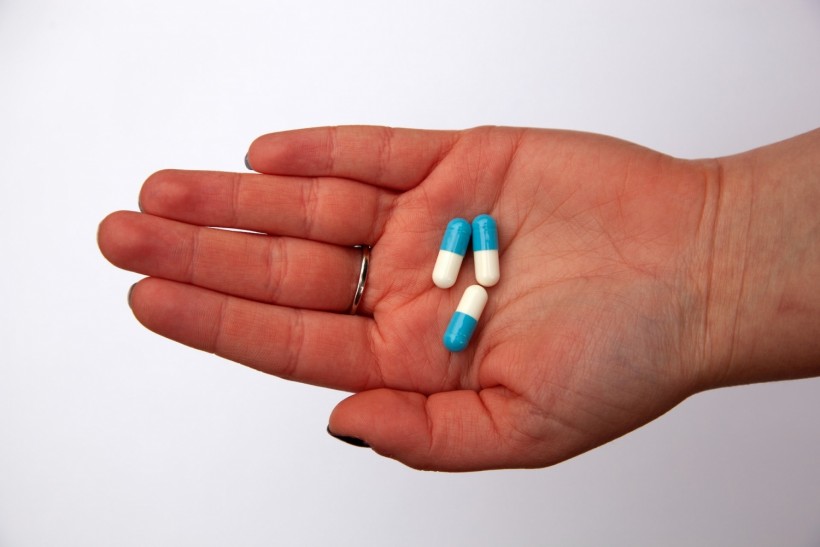Medicines may be essential for treating chronic health issues like diabetes, hypertension, and heart disease. In fact, they may be life-saving in many instances. But unnecessary medication is a concern because it may cause more harm than good. You may end up facing severe side effects due to prolonged use of over-the-counter medicines and prescription drugs when they are not required. Even worse, painkillers, sleeping pills, and anxiety drugs can get addictive in the long run. But you cannot give up on medication abruptly as it may negatively affect your condition. Fortunately, you can steer clear of the unprecedented use of these medicines without compromising safety and quality of life. Here are some simple tips to avoid unnecessary ones safely.
Talk to your healthcare provider first
Stopping a prescription drug suddenly can be dangerous as it may have several side effects. Further, your symptoms may worsen based on the drug chemistry, treatment regimen, and the metabolism and excretion process. Many factors are to be borne in mind if you use the regime to treat a severe or chronic health issue. Discuss the intention with your healthcare provider in the first place to seek their input on the potential outcomes. Ask whether you have the option to discontinue safely. If they allow it, get advice on how and when to stop the medication.
Keep track of long-term treatment regimens
The problem of unnecessary medication is more common than you imagine. Many patients take prescription drugs and OTC medicines they do not require only because of a lack of awareness. Keeping track of your long-term medications is the key to awareness and prevention. For example, sleeping pills should be taken only for the short term, and allergy medications may be required seasonally. You may consider stopping blood pressure treatment if it is in the normal range after losing weight. Likewise, you can move to milder doses of painkillers if your condition is better. Whatever you choose, ensure getting a green signal from your doctor.
Stop for a valid reason
Patients suffering from chronic conditions need to rely on maintenance medications for the long haul. They may feel tempted to take a break when the therapy seems to make them better. While non-adherence may save them some money, it can worsen their health issue and even lead to hospitalization. Remember that you must stop taking medicines only when you have a valid reason, and feeling better is not good enough. Symptoms for conditions like depression or arthritis may return upon discontinuing treatment. Health issues such as hypertension and high cholesterol are asymptomatic, which elevates the risk of non-adherence even further. You cannot consider yourself disease-free only because you do not have symptoms. Let your doctor decide whether you have a reason to stop the treatment.
Look for a natural alternative
Another practical tip to avoid unnecessary medication is to look for a natural alternative to address your problem. Holistic therapies and natural alternatives work well for less serious conditions, so be aware of the issue you want to treat with it. For example, you can rely on cannabis as a healthier alternative to painkillers, sleeping pills, and antidepressants. The good thing about cannabis as a wellness aid is that it is legal in many American states, so availability and accessibility are not a problem. You can get weed delivered to your doorstep or visit a local dispensary to buy it. Another good reason to consider it an alternative is that you can explore different strains and products and choose apt ones for your condition. But remember to check with your doctor and a medical cannabis specialist.
Understand how to stop safely
Once you are sure about quitting medication, it is time to implement a viable plan to do it safely. Everything boils down to the medicine you want to discontinue. You may stop some drugs immediately, but many require a tapering process with a gradual reduction in frequency or dose over several days or weeks. Slow tapers prevent unpleasant side effects or withdrawal symptoms that may happen when you discontinue the drug abruptly. Consider tapering medicines one at a time if you want to stop several drugs together. Once again, check the schedule with your practitioner.
Be aware of potential side effects
Discontinuation of unnecessary medication is a complicated process. You cannot expect it to be a breeze if you have been on treatment for a long time. Besides the struggle to ditch the habit, you may have to deal with a lot more. Side effects are normal though they may vary in degree and severity. For example, giving up on mood-boosting selective serotonin reuptake inhibitors (SSRI) antidepressants can have disconcerting side effects such as anxiety, fatigue, dizziness, and upset stomach. While these side effects are not dangerous, they make one uncomfortable. Awareness puts you in a good place because you can handle the implications better. You can ask your doctor about what to expect about the duration of side effects and seek advice on actionable measures to reduce them.
Chart your discontinuation plan
Charting your discontinuation plan is another valuable piece of advice, as it entails documenting everything about the step. You must also do it when swapping an existing treatment regimen with a milder one. Record the doctor's notes on taper doses and schedules, expected outcomes, common side effects, and substitute details. The information is valuable for future reference if you need to change your regimen or return to the old treatment again. Moreover, it is also valuable for people looking for guidance from a holistic practitioner.
Giving up on unnecessary medication need not be risky, provided you do it strategically and under proper medical guidance. You must never stop suddenly or without advice from your doctor, no matter how healthy and symptom-free you feel. Safety should be on top of your mind, and you can stay on top of it by following these simple tips and precautions. Also, avoid over-the-counter medications in the first place because you may become habitual sooner than later.
* This is a contributed article and this content does not necessarily represent the views of sciencetimes.com















